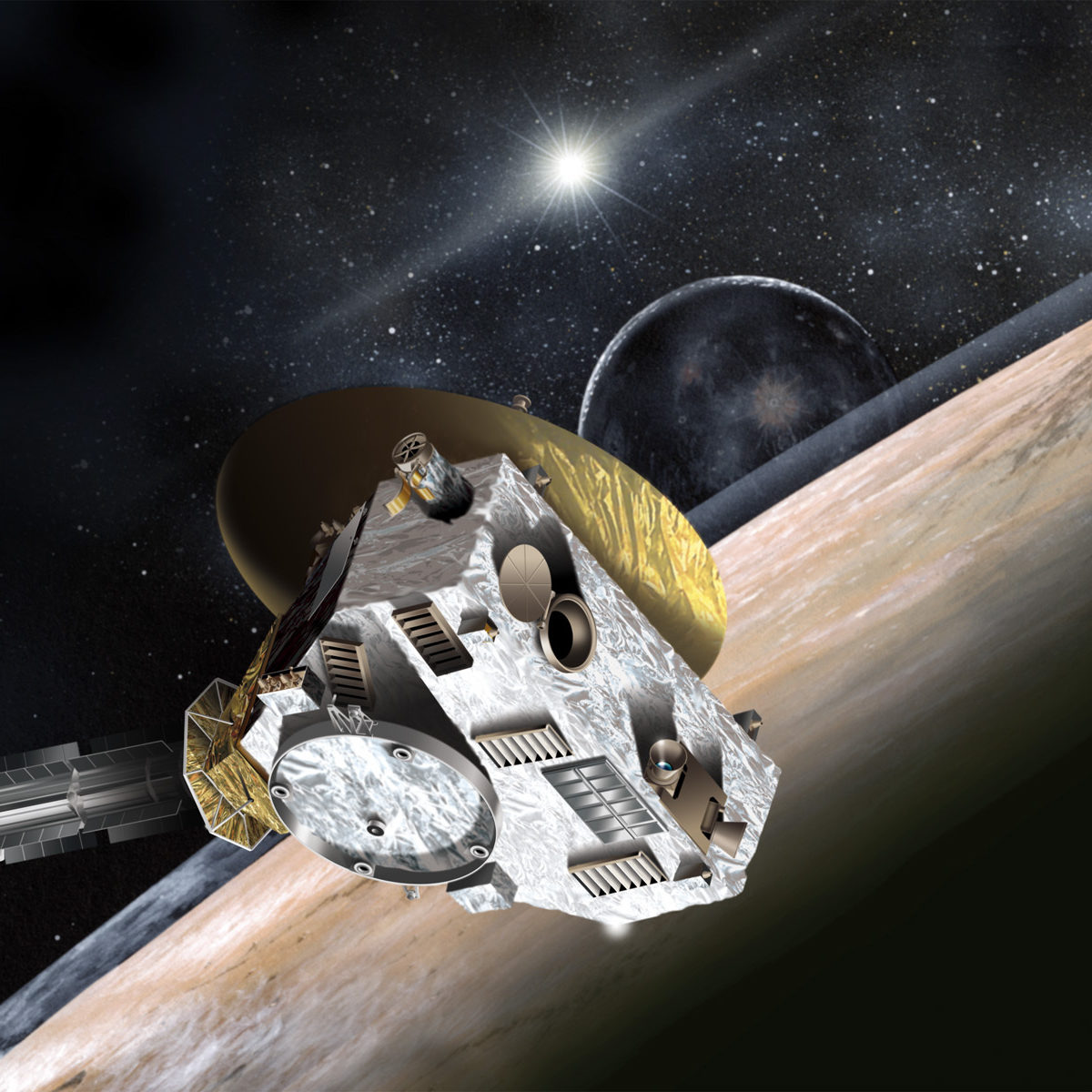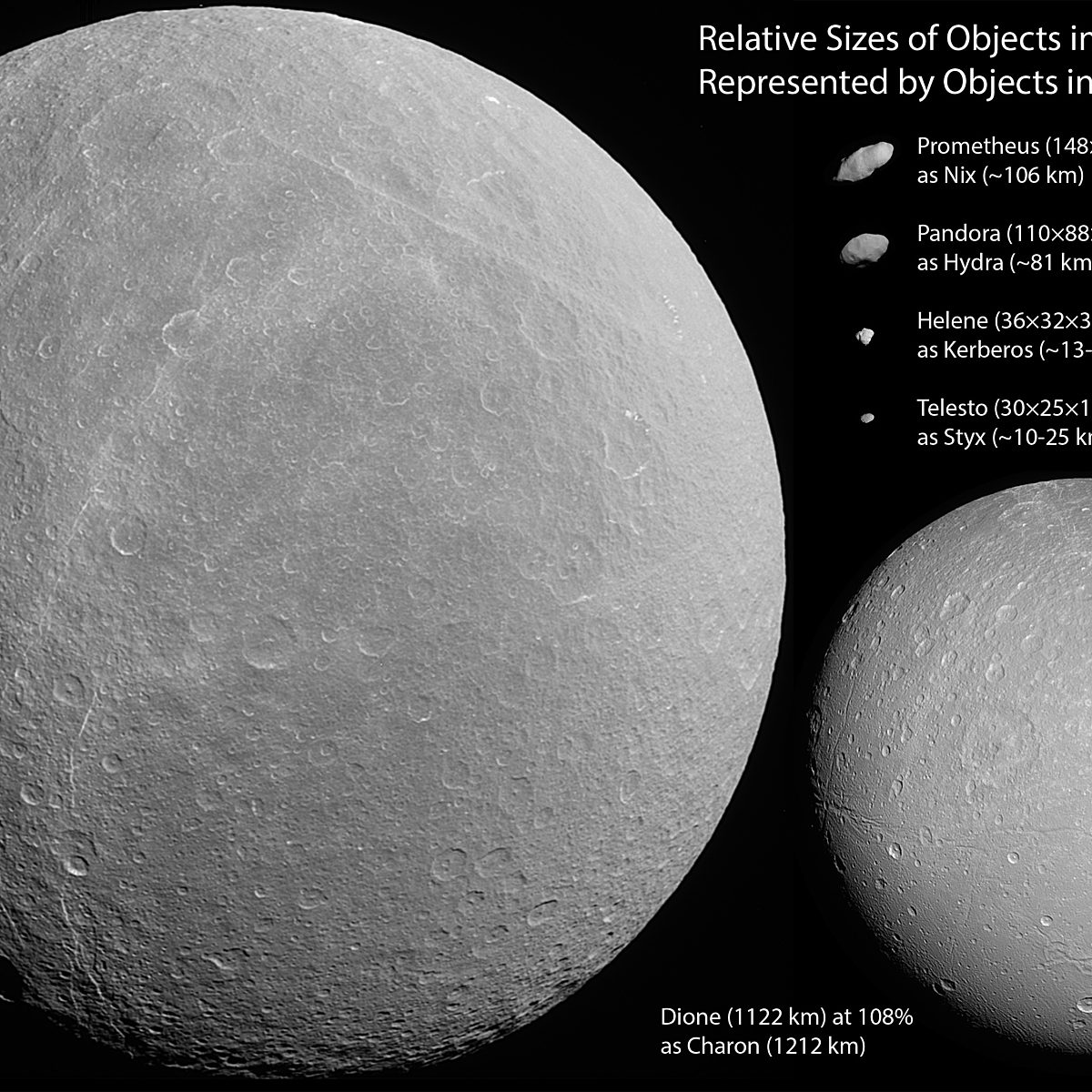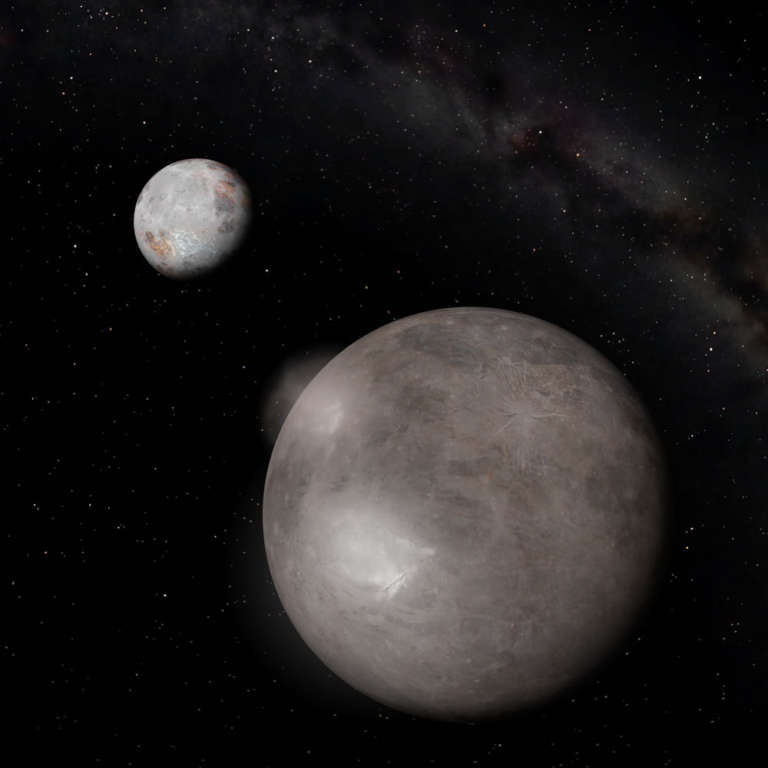All
All
Stories, updates, insights, and original analysis from The Planetary Society.
New Horizons: Updates From the Science Team Meeting, Part 1
Ted Stryk reports on the status of the New Horizons mission from the mission's latest Science Team Meeting.
New Horizons: Late in Cruise, and a Binary Ahoy
New Horizons has just completed a summer of intensive activities and entered hibernation on Aug. 20. The routine parts of the activities included thorough checkouts of all our backup systems (result: they work fine!) and of all our scientific instruments (they work fine too!).
Dwarf planet, wassup?
In which the fifth graders of Kipp Heartwood Academy argue the competing sides in the is-Pluto-a-planet debate through the medium of rap.
Pluto on the Eve of Exploration by New Horizons: Is there an ocean, or not?
Does Pluto have an ocean under its ice? If it doesn't now, did it ever have one? How will we know?
Pluto on the Eve of Exploration by New Horizons: Small moons, dust, surfaces, interiors
My roundup from notes on the day's presentations on dust in the Pluto system and the surfaces and interiors of Pluto and Charon.
Remembering the Pluto Campaign: A Success Story
The New Horizons mission to Pluto survived many near-death encounters with cancellation during its development. The Planetary Society worked the whole time to ensure it would launch.
New names for Pluto's little moons Kerberos and Styx; and a new moon for Neptune
Pluto's moons, formerly known as
DPS 2012: Double occultation by Pluto and Charon
A few talks at last week's Division for Planetary Sciences meeting discussed observations of a double occultation -- both Pluto and Charon passing in front of the same star.
New Horizons workshop, day 1: Chemistry & climate on Pluto & other cold places
Today and tomorrow I'm attending the New Horizons Workshop on Icy Surface Processes. The first day was all about the composition of the surface and atmosphere of Pluto, Charon, Triton, and other distant places.
A fourth moon for Pluto
That's right: Hubble observations have yielded the discovery of a third small body orbiting Pluto and Charon.
The scale of our solar system
Space.com has taken advantage of the infinitely scrollable nature of Web pages to produce a really cool infographic on the scales of orbital distances in the solar system.
365 Days of Astronomy Podcast: What's in a Science Meeting?
Today the 365 Days of Astronomy podcast aired my contribution, What's in a Science Meeting?, about what scientists do at big meetings like the Division of Planetary Sciences.
DPS 2010: Pluto and Charon opposition surges, Nix and Hydra masses, Pluto and Eris compositions
An awful lot of the talks in the Pluto session on Tuesday morning, October 5, at the Division of Planetary Sciences meeting spent more time focusing on how bad weather conditions were during the astronomers' attempts to view Pluto as it occulted background stars than they did on any measurements or science that came out from the data.
Hubble turns 20
Tomorrow is the 20th anniversary of the launch of the Hubble Space Telescope. It's hard to believe it's been going strong for so many years.
Ever Plan Ahead? How About Six Years Ahead?
Despite still being more than six years and just over 18 Astronomical Units from the Pluto system, the project team for New Horizons is conducting the second and final portion of our Pluto Encounter Preliminary Design Review (EPDR) tomorrow and the next day.
Yet another active world: Charon
I've just posted a news story on a recently published paper that suggests that Pluto's moon Charon may have active ice volcanoes.
Bedtime for New Horizons
According to the mission website, the New Horizons spacecraft has drifted off to sleep, entering its
Speaking of Pluto...
I just posted today's installment of Planetary Radio, in which Mat Kaplan gets an update on New Horizons from Principal Investigator Alan Stern-- check it out!
The Discovery of a Planet, Part 5: The Aftermath
The discovery of Planet X was announced to the world on March 13, 1930, which marked the anniversary of William Herschel’s discovery of Uranus in 1781 as well as Percival Lowell’s birthday. The observatory’s communiqué emphasized that the discovery was no coincidence, but the vindication of Lowell’s predictions made years before.


 Explore Worlds
Explore Worlds Find Life
Find Life Defend Earth
Defend Earth


 Sun
Sun Mercury
Mercury Venus
Venus Earth
Earth Mars
Mars Jupiter
Jupiter Saturn
Saturn Uranus
Uranus Neptune
Neptune Small Bodies
Small Bodies









